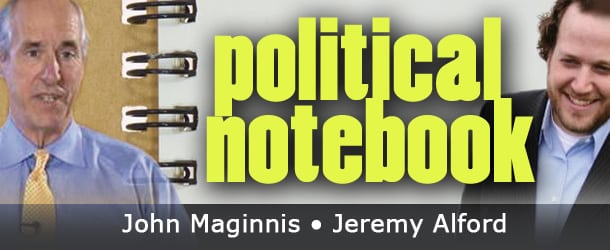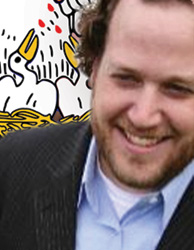The Committee for Better Schools in Calcasieu Parish, a political action committee (PAC) comprised of concerned and interested citizens, formed earlier this year with three main objectives. They were eager to increase awareness of the importance of the school board for the local community, encourage and support good candidates, and, in the future, support the board by providing information and research on big issues.
“With 11 of the 15 available seats on the Nov. 4 ballot and Southwest Louisiana in the midst of unprecedented growth, this is an extraordinary time for our area,” said Paul Bonin, chairman of the committee. “Great opportunity for growth means we are also facing some big challenges. So we want to help the business community, as well as the general public, understand how important the board is and what their role is in shaping our future.”
Before the election, the committee met with every incumbent as well as almost every new candidate running. It closely watched items that committee members felt were large obstacles that were going to need to be addressed.
“At this point, we feel we’ve accomplished our first objective of increasing awareness pretty well,” Bonin said. “We’ve got 10 new members coming in, which we’ve never had before, and our community got involved in these latest elections like never before.
“We made a lot of headway with encouraging and supporting good candidates too, as we’ve got some good people with different perspectives coming in.”
As far as the third objective of supporting the school board in making good decisions and establishing good practices, Bonin said time will tell whether they will be able to make headway. “We want to support and be there for board members: to help them make good decisions. It is not our objective to get involved in everything. But there are some bigger issues we want to lend our support to, whether it’s through things like independent research studies, open discussions, etc.”
An example of an issue that will need to be addressed in the near future is the bonding district limitations pointed out in the regional impact study recently released by the Go Group.
“This is exactly the type of situation we want to be able to lend support to the board going forward,” Bonin said. “A lot of policy affecting public schools lies within the boundaries of state and federal lawmakers. We want to help out with the things we have the capacity to change on our own, things that directly affect Calcasieu Parish public schools.”
Business Shapes School Board Elections
The business communities in East Baton Rouge Rouge, Jefferson and Lafayette parishes helped steer the primary school board elections in their own backyards. The activism is continuing into the runoff.
But the question moving forward, regardless of the various outcomes, is whether this is the beginning of a statewide trend in Louisiana.
“It’s possible,” said Stephen Waguespack, president of the Louisiana Association of Business and Industry. “I think people are chasing the fight where it goes.
“We spent the last decade passing new laws on the state level, and the goal has been in implementing them on the local level. It’s like finding where the water is running on a leaky faucet.”
Waguespack said the “big test” is in Jefferson Parish, where the business community has made a major push in previous cycles to elect a school board that agrees with its vision.
With a decent grasp on the election landscape, business and industry was challenged by national unions that wanted to unseat the board they built. “A lot of people want to know how that plays out,” Waguespack said. “It could let us know what could be in store elsewhere.”
Following the primary results, labor forces and the business community each secured three seats on the Jefferson Parish School Board. That showed the unions can indeed fight back.
That also makes the two remaining seats in the runoff all the more important for both sides. Business currently has a 5-4 majority there.
In East Baton Rouge, corporate activists are following the model implemented in Jefferson, Waguespack says, with their own touches. Businessman Lane Grigsby and others have created the Better Schools for Better Futures PAC to bring new faces to the board. The reform movement also includes LABI and the Baton Rouge Area Chamber.
One of the PAC’s candidates won in the primary, two lost and three are now in runoffs.
In Acadiana, the Greater Lafayette Chamber of Commerce has formed the Empower PAC to “end the dysfunction of [the] school board.” Of the seven pro-business candidates backed by the Lafayette PAC, only three secured victory.
Noticeable Turnover Expected
Roughly 20 percent of the municipal officials elected this cycle will be new to their offices. “It could possibly be higher than that, based on what we saw last spring,” said Ronnie Harris, executive director of the Louisiana Municipal Assoc., referring to a one-third turnover from the last municipal cycle.
“That’s going to put a lot of pressure on us to make sure they’re trained as soon as possible in the basics of the basics, like ethics laws, open meetings, public bid law and so on.”
Of the mayoral races on the ballot this fall, 65 were unopposed, and 91 of the races fielded 232 candidates. For chiefs of police, 50 were unopposed, and 70 races drew 185 candidates, according to Harris.
Perkins Changes Mind; Backs Cassidy
After complaints from the right that Cassidy wasn’t conservative enough or in line with stances from evangelical Republicans, Congressman Bill Cassidy picked up the endorsement of faith activist Tony Perkins. Perkins previously endorsed retired Air Force Col. Rob Maness, who ran third in the U.S. Senate primary.
Perkins had earlier told The Hill, a D.C. newspaper, that he was unlikely to support Cassidy in a runoff and that the congressman would have a “hard time” winning in December.
His change of heart followed a personal meeting with Cassidy.
Perkins, president of the D.C.-based Family Research Forum, sent a letter to Cassidy after the meeting explaining his decision.
“I now believe that you share our commitment to religious freedom, and you agree it is of paramount importance to our nation,” Perkins wrote, in the letter obtained by LaPolitics.
The Louisiana Family Forum, which Perkins once ran, is planning a pro-life, pro-Cassidy media blitz, according to sources. It will not be an official endorsement, but the public relations push will be supportive of Cassidy’s stances, according to a press release.
Testing The Tea Party
This election year is prompting some on the right to begin writing the Tea Party movement’s obituary. Others are predicting a long-expected merger with the evangelical wing of the state GOP.
To be certain, many of the Tea Party’s priorities are intersecting with those of the Christian right this year in Louisiana. Last month in Pride, Tony Perkins, president of the Family Research Council, hosted a rally for candidates who had received endorsements from various Tea Party groups.
Those invited to the religious rally were retired Air Force Col. Rob Maness, a U.S. Senate candidate; Zach Dasher from the 5th Congressional District field; and state Rep. Lenar Whitney from the 6th District race.
Bob Reid, one of the founding members of the Tea Party of Louisiana, said there’s definitely something to read into it all. “We’re starting to overlap a lot. We’re working closely together,” he said. “Our organization has given the Republican leadership four years to take hold of all this and calm down. But it’s still a RINO (Republican In Name Only) establishment. We may eventually try to make a big move with the Christian right and start our own party.”
Those interviewed, both from inside and outside these factions, aren’t so sure about that bold statement. But most were in agreement that times are changing, and very quickly.
Tea Party factions have already been co-opted by religious organizations in other states. And the movement in Louisiana may need a boost.
While Maness failed to get the support of the stateside Tea Party groups, he had much more to gain this cycle from national Tea Party endorsements. For instance, he gained money, which is noticeably absent from the state’s Tea Party scene, along with infrastructure and organization.
The national group Tea Party Express financially backed Maness, Dasher and Paul Dietzel in the 6th District. Other groups with like leanings, such as the Senate Conservatives Fund, Madison Project, Club for Growth and FreedomWorks, have been playing in Louisiana as well.
One politico connected to conservative politics said nods from national Tea Party groups are the only kind that matter in this environment. “The Tea Party in Louisiana peaked in 2010 and they still don’t realize it,” the source said. “It’s on its last legs here. So it makes sense for them to try and combine forces with another fringe group like the Christian right.”
Reid countered that the talk is “just bashing and negativity from the establishment.”
Still, the Tea Party folks need a big win in Louisiana this year to remain relevant. On the other side of this equation, sources close to Christian politics say they are seeing an “evangelical renaissance” in Louisiana that’s being fueled partly by interactions with voters who started their activism with the Tea Party movement.
They saw the Dasher campaign, in particular, as the perfect hybrid during the primary. He avoided the kind of guerrilla tactics that can often make traditional Tea Party candidates look hokey, while still pulling down money from the national groups. He also crafted a hard-right religious message while offering up his campaign as a “melting pot for conservative voters,” one campaign source said.














Comments are closed.